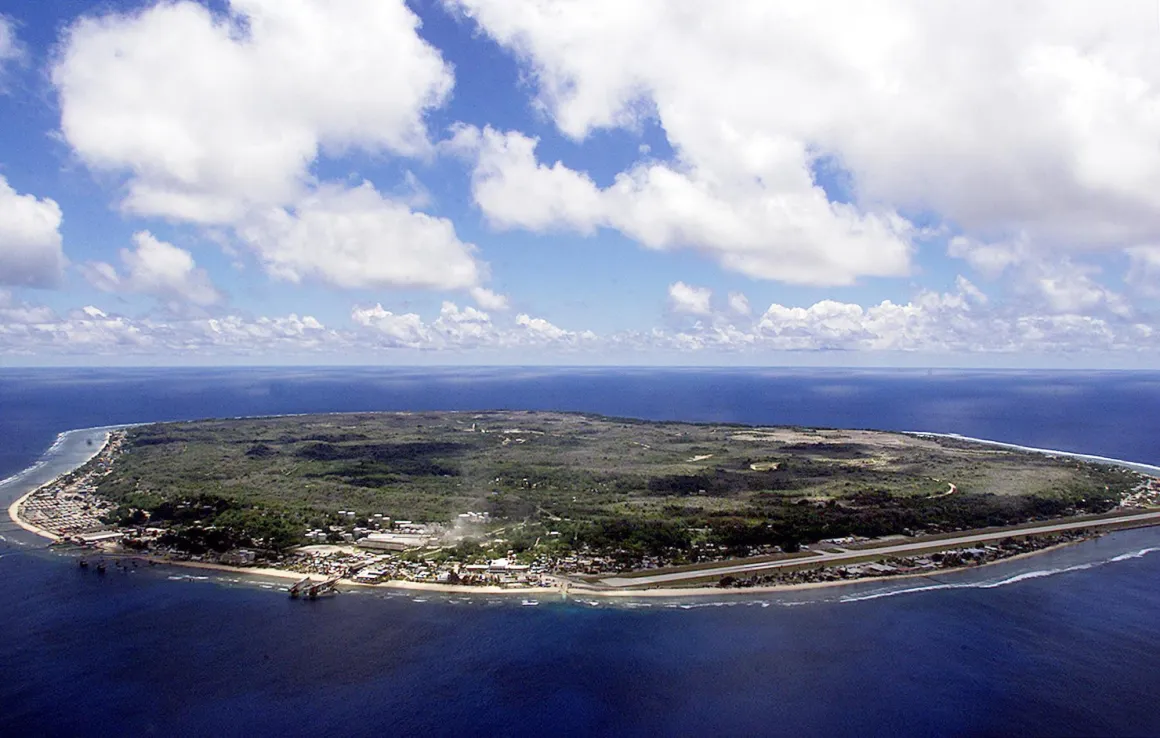The Government of Nauru unveiled its groundbreaking Nauru Economic and Climate Resilience Citizenship Programme at the 2024 United Nations Climate Change Conference (COP 29) in Baku, directly addressing the key conference themes of climate finance and adaptation.
In his address to COP 29 delegates, Asterio Appi, Nauru’s Minister for Climate Change and National Resilience, presented the innovative financing initiative as an opportunity for conscientious investors to acquire an additional citizenship while contributing to climate adaptation and sustainable development projects in the South Pacific.
An opportunity for conscientious investors to acquire an additional citizenship while contributing to climate adaptation in the Pacific.
Minister Appi highlighted the programme’s broader impact: “Nauru, like many South Pacific nations, plays an outsized role in protecting globally significant biodiversity. Our ecosystems support more rare, endangered, and threatened species than those anywhere else on Earth.
Yet we stand on the frontlines of climate change, facing rising sea levels, intensifying storm surges, and accelerating biodiversity loss. The consequences of global warming are rendering Pacific Island states increasingly uninhabitable. By choosing Nauru’s citizenship programme, investors aren’t merely securing their own future — they’re investing in the future of our planet.”
The UN has repeatedly stressed that access to finance, and in particular climate finance, is a critical enabler to help Small Island Developing States (SIDS) achieve their Sustainable Development Goals.
As it points out, SIDS are disproportionately and increasingly affected by the impacts of climate change and urgently require access to external financial support to build resilience in the social, economic, and natural systems on which they, and the rest of the world, depend. However, the current climate and development finance architecture is exceedingly complex and ill-equipped to operate efficiently, fairly, and at the speed and scale needed to meet SIDS’s needs.
Speaking at the programme’s launch event in Baku, newly appointed Director of Compliance of the Nauru Economic and Climate Resilience Citizenship Programme Office, Isa Seow, pointed out that as the world’s smallest independent republic and third-smallest country, “Nauru is a testament to resilience and innovation, pioneering a unique approach to citizenship that combines economic growth with environmental stewardship.”
Seow explained that the programme offers a streamlined path to citizenship, with processing times of just three to four months. Investors can secure Nauruan citizenship through a contribution to the national Treasury Fund, starting at USD$105,000 for a single applicant. This investment unlocks benefits for international investors including visa-free access to 89 destinations, unrestricted dual citizenship, and the ability to extend citizenship to family members.
He underscored the programme’s commitment to integrity: “We’ve implemented rigorous due diligence processes and robust governance structures to ensure that only individuals of the highest caliber participate in shaping Nauru’s future. This program isn’t just about acquiring another passport; it’s about joining a community dedicated to pioneering solutions for global challenges.”
Nauru’s government has mandated leading international investment migration advisory firm Henley & Partners to design, set up, and run the Nauru Economic and Climate Resilience Citizenship Programme.
The firm’s Government Advisory practice has assisted the governments of over 20 jurisdictions and countries across Africa, Asia, the Caribbean, Europe, the Middle East, North America, and Oceania in designing, setting up, operating, and promoting investment-related residence and citizenship programmes and has raised more than USD$15 billion in foreign direct investment.
President of Nauru, David Adeang says, “Investment migration has emerged as a powerful mechanism for mitigating sustainability risks and enhancing climate resilience. Nauru’s program sets a new standard in this realm, channeling investments directly into projects that safeguard the nation’s future and contribute to global environmental preservation. Nauru’s innovative approach offers a tangible example of how nations can leverage private investment to address pressing environmental challenges.”
Dr Juerg Steffen, CEO of Henley & Partners, says, “What sets residence and citizenship by investment programmes apart from debt-driven financing approaches is that they enhance the sovereign equity of the nations that host them. They do not require compromising or sacrificing one strategic objective to achieve another. Investment migration is a true win–win, long-term, sustainable solution for all stakeholders, whether they are investors or nation states and their citizens. More and more governments are seeing the benefits of residence and citizenship programs as a mechanism to mitigate sustainability risks by financing development initiatives.













